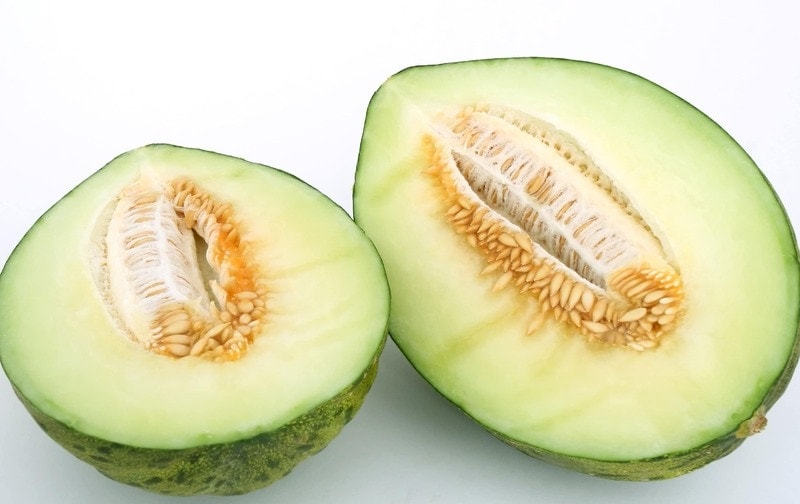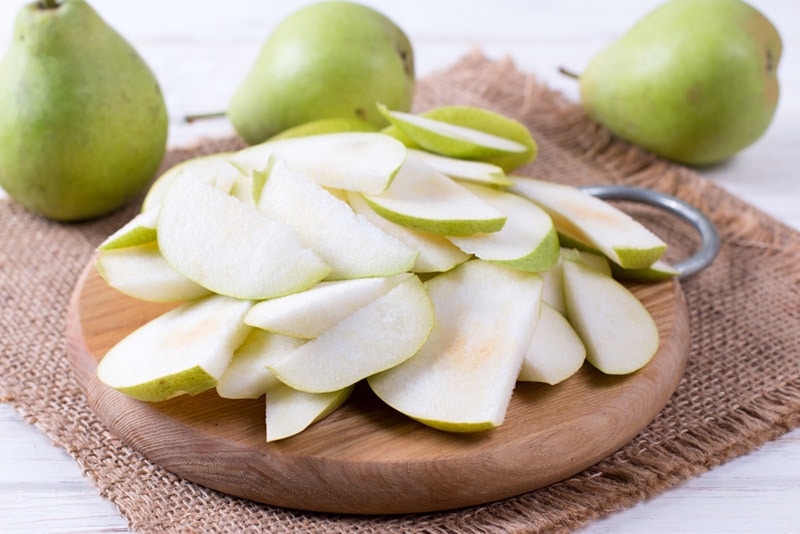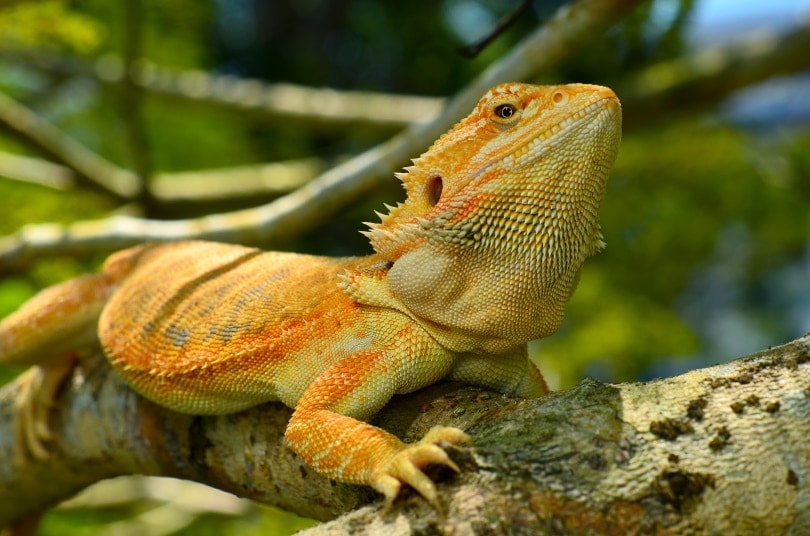Can Bearded Dragons Eat Spiders? Vet-Reviewed Nutrition Facts & FAQ
Updated on
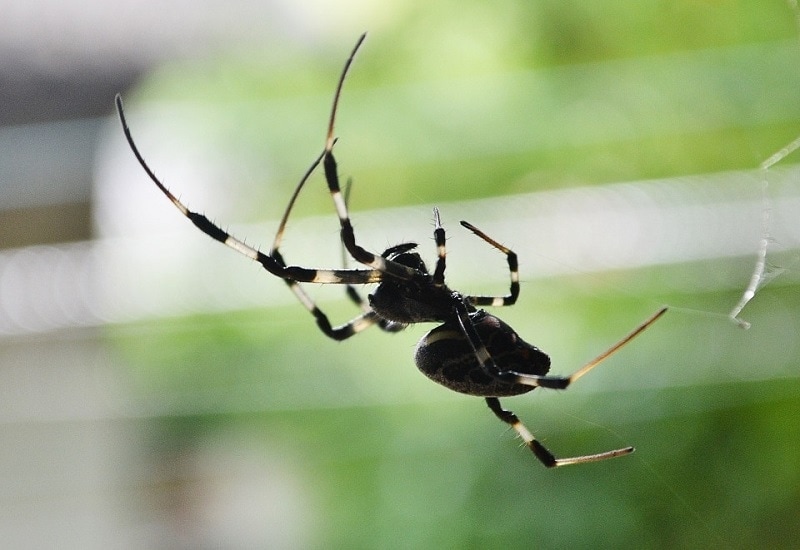
Click to Skip Ahead
Bearded dragons are one of the more popular reptiles for pet owners who want a unique, scaly friend. As with many reptiles though, it can be hard to tell what’s safe for them to eat, and what’s not. Beardies generally don’t discriminate with food, but they do have certain preferences and dietary needs that make some foods better than others. For instance, can bearded dragons eat spiders?
Technically they can, but they probably shouldn’t in most cases, and certainly not on a regular basis. Eating the odd spider probably won’t harm your beardie and can keep them from getting bored with the same diet. But, the variety might not be worth the risk if they eat one that is deadly. Let’s look at several compelling reasons why you should generally avoid feeding spiders to your bearded dragon.
Reasons to Not Feed Spiders to Your Bearded Dragon:
- They’re venomous: It probably goes without saying, but venomous spiders like the Black Widow and Brown Recluse can be toxic or fatal if your beardie was to eat them.
- Spiders May Carry Parasites: Spiders can carry parasites, and those can pass to your bearded dragon and pose all sorts of health issues.
- They’re Not Very Nutritious: Spiders do have protein and calcium, but also lots of fat and few other nutrients your beardie needs.
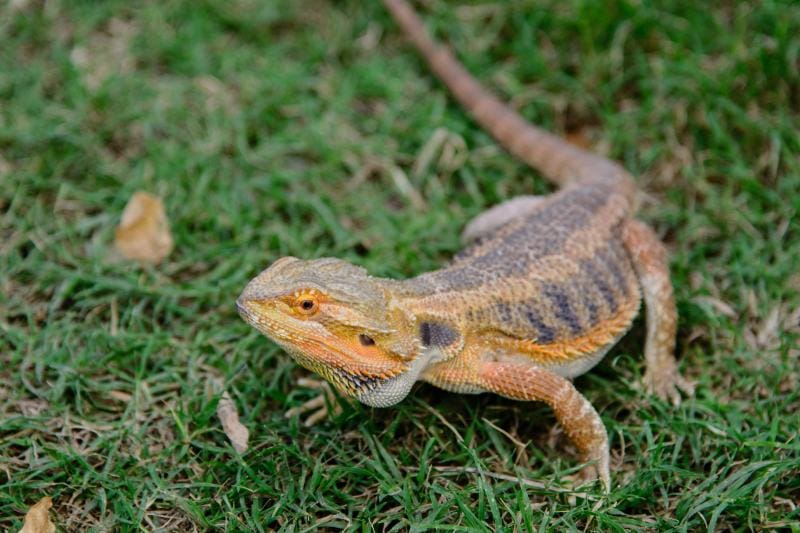
Spiders to Avoid
While some spiders are harmless, some are extremely venomous, and should be avoided at all costs. The venom of these spiders may be dangerous enough when they bite, so it’s potentially fatal when your beardie eats one of them too. Familiarize yourself below with the most dangerous spiders to your beloved bearded dragon (and you!).
- Brown recluse
- Black widow
- Wolf spider
- Hobo spider
- Yellow sac spider
Ideal Diet for Bearded Dragons
Bearded dragons are omnivores that eat a mixture of invertebrates and plant matter in the wild, with some larger dragons occasionally enjoying other small reptiles or tiny mammals, if given the chance. Juvenile beardies need more protein than older beardies—up to 80% bugs and just 20% plant matter – and also need to eat more often. On the flip side, adult bearded dragons tend to eat less frequently and less protein. Let’s check out some essential ingredients you should be using in your beardie’s diet and why.
- Crickets: Crickets are the perfect source of protein for your beardie, rich in protein and calcium, as well as other nutrients.
- Locusts: Less common than crickets but just as nutritious and tasty, locusts add variety to your beardie’s diet without compromising on nutritional content.
- Dubia Roaches: Beardies love roaches of all types, but Dubia roaches are the best because they have a very low-fat content and tons of protein.
- Larvae and Worms: Butterworms, mealworms, and earthworms are all viable choices here, but worms are a great food to rotate with other protein-rich bugs to keep your beardie’s diet diverse and interesting.
- Alfalfa: Rich in fiber, vitamin A, fiber, and low in oxalates that can harm calcium absorption, alfalfa is a valuable plant food source to use in your beardie’s diet.
- Greens: Many greens are suitable for bearded dragons, but some we recommend include collard greens, turnip greens, bok choy, and dandelion greens.
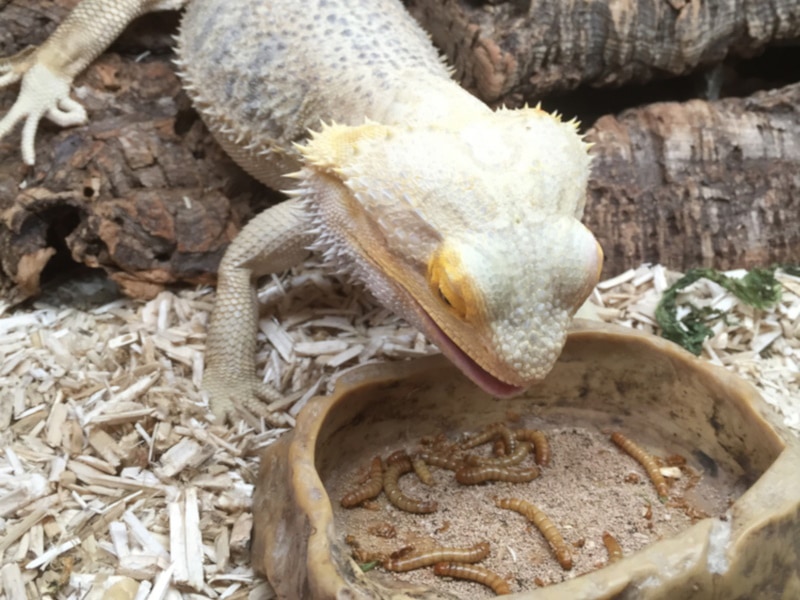
Can I Feed My Bearded Dragon Bugs I Catch?
We strongly advise against this. Although it may seem like a fun and frugal way to find food for your pet, there are many risks associated with it.
- Correct species identification – for example, there are a few caterpillar species that are safe and nutritious for beardies to eat, but the majority range from mildly to highly toxic – will you know the difference?
- Pesticides, herbicides and other chemicals – these could be absorbed from the soil or have been sprayed on the bugs themselves, which can lead to secondary poisoning for your bearded pal.
- Parasites – many invertebrates can carry various parasites that can be passed onto your dragon when they eat them.
For all these reasons, we recommend that you always source your Bearded Dragon’s food from a reputable pet shop, preferably one that is experienced in reptile husbandry.
Can Bearded Dragons Eat Fruit?
Yes, and fruit can help supply your bearded dragon with lots of valuable vitamins, minerals, and other nutrients that contribute to a healthy diet. However, you want to avoid the most sugary, sweet fruits and opt for fruits with lower natural sugar content. That said, beardies don’t need fruit regularly and it should make up 5% or less of their diet—an occasional treat. For ideas on what fruits to offer them, check out some safe, tasty fruits below.
- Apples
- Grapes
- Blueberries
- Papaya
- Raspberries
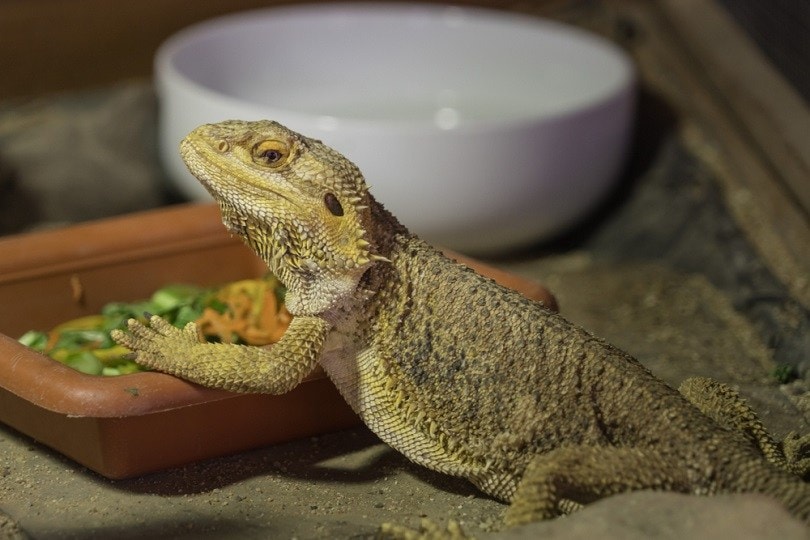
Conclusion
Bearded dragons are excellent pets for first-time reptile owners, and it helps to pay attention to what they should and shouldn’t eat to best keep them healthy. Some spiders are technically edible, but many are poisonous, and even the safe ones aren’t the most nutritious thing for beardies. Instead, stick to crickets, locusts, and roaches as main protein sources, and always purchase from a reputable pet food provider rather than forage for bugs yourself.
See also:
- Can Bearded Dragons Eat Moths? Vet-Reviewed Nutrition Facts & FAQ
- Can Bearded Dragons Eat Cheese? Vet-Reviewed Nutrition Facts & FAQ
Featured spider biteImage Credit: nuzree, Pixabay


